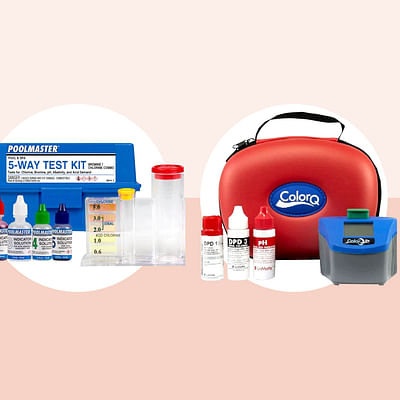🏊 Pool Water Testing Knowledge Quiz
Pool Water Testing Knowledge Quiz
Test your understanding of pool water testing with this interactive quiz. Let's see how well you've grasped the concepts!
Just taken our Pool Water Testing Knowledge Quiz? Whether you aced it or not, it's clear that understanding pool water testing is crucial for maintaining a healthy and safe swimming environment. But don't worry, we at Aquatic Inspections are here to help you dive deeper into this essential topic.
Why is Pool Water Testing Important?
Regular pool water testing is not just about keeping your pool looking crystal clear - it's about ensuring the health and safety of everyone who uses it. An unbalanced pool can cause a variety of issues, from skin and eye irritation to costly equipment damage. By testing your pool water regularly, you can maintain the correct chemical balance, ensuring safety, and increasing your pool's longevity.
Key Chemical Levels in Your Pool
Understanding the key chemical levels in your pool is vital. These include pH, chlorine, alkalinity, and stabilizer levels. Each of these plays a significant role in maintaining the overall balance of your pool. For instance, the pH level affects how effective your chlorine is, while the stabilizer level helps to protect your chlorine from the sun's UV rays.
How Often Should You Test Your Pool Water?
Regular testing is key to maintaining an optimal swimming environment. We recommend testing your pool water at least once a week. However, during heavy usage or after a heavy rainstorm, more frequent testing may be necessary.
Choosing the Right Pool Testing Kit
There are various types of pool testing kits available on the market, including digital, manual, and test strips. Each has its own advantages and disadvantages, so it's important to choose the one that best suits your needs and comfort level.
Interpreting Your Results
Once you've tested your pool water, it's important to understand what the results mean. If your chemical levels are off, you'll need to adjust them accordingly. This might involve adding more chlorine, adjusting your pH, or adding a stabilizer. Remember, maintaining the right balance is crucial for ensuring a safe and enjoyable swimming experience.
At Aquatic Inspections, we're committed to helping you keep your pool in top condition. For more tips and guides on pool maintenance, inspection, and installation, feel free to explore our website. Happy swimming!



